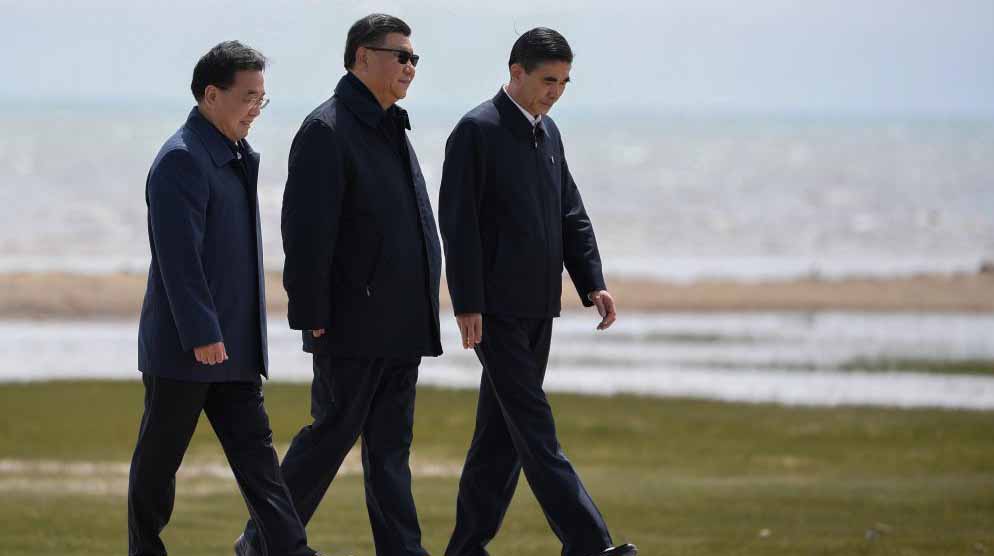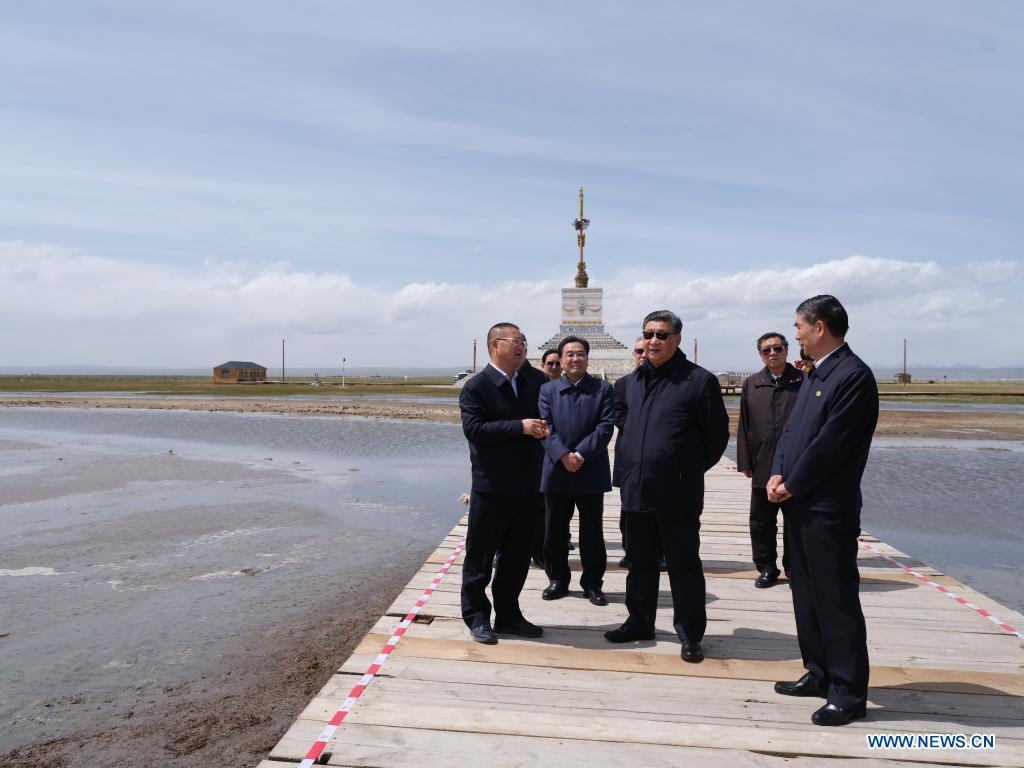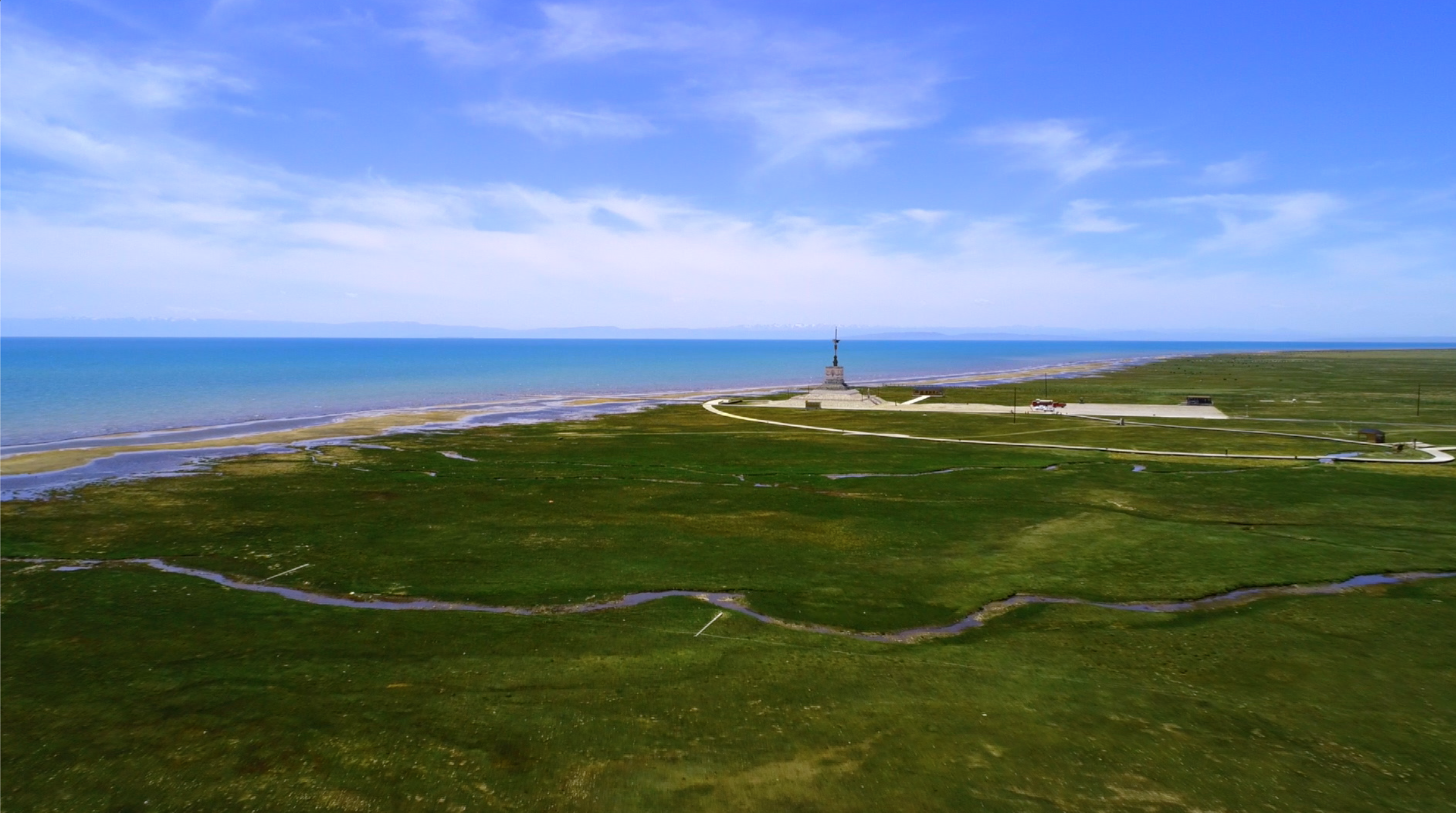01:43

Behind its spectacular landscape and great harmony between man and nature, China's Qinghai Lake, in the northeastern part of the Qinghai-Tibet Plateau, tells a real-life story about China's unremitting efforts to enhance ecological protection of the "roof of the world."
"Ecology is our resource, wealth and treasure," Chinese President Xi Jinping said while inspecting the lake during his recent inspection tour of northwest China's Qinghai Province.
Wrapping his inspection on Wednesday, President Xi stressed the need to always put the people first and advance reform and opening-up to promote ecological conservation and high-quality development on the Qinghai-Tibet Plateau.

Chinese President Xi Jinping is briefed about the environmental protection efforts in the Qilian Mountains and Qinghai Lake in Gangcha County of the Haibei Tibetan Autonomous Prefecture, northwest China's Qinghai Province, June 8, 2021. /Xinhua
Chinese President Xi Jinping is briefed about the environmental protection efforts in the Qilian Mountains and Qinghai Lake in Gangcha County of the Haibei Tibetan Autonomous Prefecture, northwest China's Qinghai Province, June 8, 2021. /Xinhua
Benefiting man and nature
Reiterating that "lucid waters and lush mountains are invaluable assets," President Xi said preserving Qinghai's environment is one of the country's top priorities and called for the effective protection of the ecology of the world's "third pole."
In 2008, Qinghai Province launched a 10-year plan on the ecological environment protection and comprehensive management of the Qinghai Lake Basin with a total investment of 1.57 billion yuan ($226 million).
A total of 800 hectares of wetland had been restored by 2018, with the number of bird species in the lake region increasing from 164 in 1996 to 225 today. The water level of Qinghai Lake also rose by 3.27 meters in 15 years.
The scenic area of Qinghai Lake, dubbed the "most beautiful lake in China," received 4.42 million visitors amid pandemic last year, with an annual tourism revenue of 265 million yuan ($41.5 million), according to local administration.
Still, efforts have been made to find a balance between protecting and developing the national nature reserve.
The Bird Island scenic spot was closed in 2017, leaving only a base for science education and waterbird monitoring facilities. Tourist facilities at Sand Island, another closed scenic spot, were also dismantled, and recreational programs like sand motorcycling and sliding were banned.
"The achievements in conserving the ecological environment of Qinghai Lake are hard-won and must be cherished, consolidated and expanded," Xi said during his visit.
01:02

National park cluster on the plateau
During the latest inspection, President Xi also told local officials to double efforts in building a nature reserves system "centering on national parks, based on natural reserves and supplemented by various kinds of natural parks" to better protect the eco-environment and biodiversity.
China has pushed forward the construction of a national park cluster to improve the ecological environment of the plateau.
Qinghai has built two national parks around Sanjiangyuan, home to the headwaters of the Yangtze, Yellow and Lancang rivers and the Qilian Mountains, which account for 52.2 percent of the province's total nature reserve area and 38.42 percent of the province's total land area.
The province is also accelerating its efforts to build a national park around Qinghai Lake. Experts approved the master plan for the park in May.
"Conserving the ecology of the Qinghai-Tibet Plateau is the greatest contribution to the survival and development of the Chinese nation," Xi said while voicing the nation's determination to build the Qinghai-Tibet Plateau into a national and even international highland in ecological progress.

